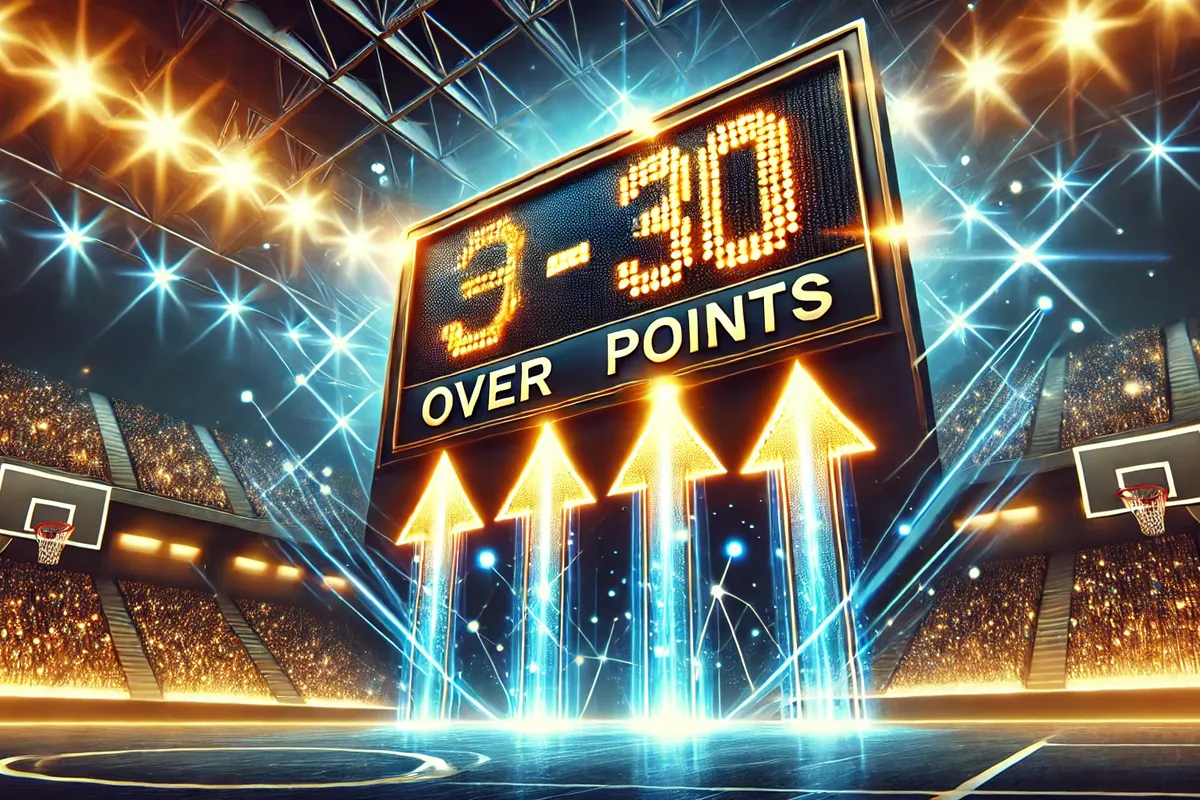Momentum in sports is a hot topic among athletes, coaches, and fans. It’s about those psychological and physical shifts during a game that lead to a string of successes. But what exactly is momentum, and how does it impact sports performance?
Think of momentum in sports like physics. It’s that force that helps a team or athlete keep building on their successes and performing at a high level. Imagine a basketball team hitting a bunch of three-pointers in a row. They start feeling more confident, get more energy, and play more aggressively. This surge can totally change the game’s outcome.
Table of Contents
ToggleThe Psychology Behind Momentum
The mental side of momentum is huge. Athletes often talk about being in a “flow state,” where everything clicks, and their actions feel effortless. This state can boost their confidence, focus, and overall performance.
When a team or player has momentum, they feel more in control and motivated. This mental boost can lead to better decisions, quicker reactions, and sharper skills. On the flip side, losing momentum can cause stress, self-doubt, and a dip in performance.
Momentum doesn’t just affect individuals; it impacts team dynamics too. A team on a roll communicates better, coordinates more smoothly, and works together like a well-oiled machine. That collective belief in being unstoppable can push them to outperform.
Factors Influencing Momentum
Several factors can swing momentum in sports. Key moments like a crucial play, a big score, or a defensive stop can shift momentum. The crowd’s energy, the game’s stakes, and even body language can play a role.
Athletes and coaches often stress staying positive and focused, no matter what’s happening in the game. This mental toughness can help keep momentum going or get it back if it’s slipping away.
Momentum in sports is a mix of psychological and physical factors. Its impact is undeniable, turning games around, boosting individual performances, and strengthening team dynamics. Knowing how to harness this can give athletes and teams a big edge.
Debunking the Myth of Momentum in Sports
While many swear by momentum, there’s a growing debate about whether it really exists. Some sports analysts and researchers argue that what we call momentum might just be an oversimplification of more complex phenomena.
One argument against momentum is that sports outcomes are driven by skill, strategy, and execution, not some mysterious force. Critics say attributing success to momentum ignores the hard work and preparation athletes and teams put in. They argue that success streaks can be explained by random chance and statistical variance, not momentum.
The Role of Randomness and Variability
In sports, randomness and variability are huge. For example, in basketball, a team might go on a scoring run due to favorable matchups, defensive lapses by the opponent, or sheer luck. This run can be seen as momentum, but it might just be a temporary alignment of favorable conditions.
Sports are full of ebbs and flows, with teams experiencing periods of dominance and struggle. These ups and downs are natural, given the dynamic nature of competitive sports. What seems like momentum could just be the natural rhythm of the game.
Psychological Perception and Confirmation Bias
Belief in momentum is also fueled by psychological perception and confirmation bias. Fans, commentators, and athletes might remember and highlight moments that fit the momentum narrative while ignoring contradictory instances. For example, a comeback is seen as gaining momentum, while a failed comeback is viewed as lacking it, even if the underlying performance factors are similar.
This selective perception makes momentum seem more real than it might be. Our brains are wired to recognize patterns and create stories, leading us to attribute outcomes to momentum rather than tangible factors.
Empirical Studies and Evidence
Research on momentum in sports has mixed results. Some studies support momentum, showing better performance after a series of successes. However, other studies find no significant evidence for momentum, suggesting that perceived momentum has little impact on actual performance.
For instance, a study in the Journal of Sports Sciences looked at various sports and found that while momentum could be identified in certain scenarios, its overall impact was negligible. They concluded that momentum might influence short-term behavior, but its long-term effect is limited.
Utilizing Momentum for Better Sports Performance
Even with the debate, many athletes and coaches believe in using momentum to boost performance. Whether real or perceived, the psychological benefits of momentum can give a significant edge in sports. Here are some ways to use momentum effectively.
Building Momentum
- Positive Reinforcement: Encouraging athletes after successful plays or practices builds confidence and a positive attitude. Positive reinforcement from coaches and teammates creates a supportive environment that fosters momentum.
- Setting Short-Term Goals: Breaking the game into smaller segments with specific goals helps maintain focus and a sense of achievement. Achieving these mini-wins contributes to overall momentum.
- Maintaining High Energy Levels: Physical energy is crucial for momentum. Proper conditioning, nutrition, and hydration ensure athletes have the stamina to keep pushing. High energy levels translate to more aggressive and effective play.
Regaining Lost Momentum
- Staying Mentally Tough: Mental resilience is key to regaining momentum. Athletes should practice staying calm under pressure and focusing on the present moment. Techniques like visualization, meditation, and deep breathing help maintain composure and refocus efforts.
- Making Strategic Adjustments: Sometimes, regaining momentum requires a change in strategy. Coaches and athletes should adapt their game plan based on the situation. This flexibility can disrupt the opponent’s rhythm and create opportunities to regain control.
- Emphasizing Team Cohesion: Strong team dynamics help recover lost momentum. Open communication, mutual support, and collective effort are vital. Team-building activities and fostering unity strengthen the group’s resolve during tough times.
The Role of Leadership
Effective leadership is crucial in using momentum. Coaches and team leaders maintain morale and motivate players. They need to recognize when momentum is shifting and take steps to reinforce positive behavior or address issues.
Leaders should model resilience and a positive attitude, showing that setbacks are part of the game and can be overcome. Their ability to inspire and guide the team through highs and lows significantly impacts performance and momentum.
Conclusion
The concept of momentum in sports performance is debated, but its psychological and emotional effects are clear. Athletes and coaches who understand and leverage these effects gain a competitive advantage. Building positive momentum, regaining it when lost, and emphasizing strong leadership can enhance performance and increase success chances.
For those looking to boost their skills and sports performance, Bet Picks Pro offers top picks directly to your phone, keeping you ahead in the game. With a 14-day risk-free trial, you can experience the benefits without any commitment. Unlock your potential and achieve your goals with Bet Picks Pro.
Written By
With 15 consecutive years of profitable seasons, Steven Wilson stands as a seasoned Sports Betting Expert. Specializing in NFL/NCAAF, NBA/NCAAB, NHL, MLB, and PGA golf, Steven has mastered the art of strategic betting. Leveraging his background in Finance & Investment, he has guided thousands to boost their income through sports betting. Whether you're looking to make smarter bets or seeking a reliable secondary income stream, Steven's expert insights and proven track record make him the undisputed authority in the world of sports betting.
Turn Your Passion For Sports Into Profits
Get monthly picks direct to your phone. Start your 14-day FREE Trial Today.
By Beginning your Free Trial, you agree to Bet Picks Pro Terms & Conditions and Privacy Policy.
You may also like
Bootleg in Football: Definition & Tactical Purpose
Let’s talk about one of football’s sneakiest and most versatile plays: the…
3 Different Types of Betting Odds
The first time I heard about betting odds was in Rounders. You’ve probably seen…
What Does Over 30 Points Mean in Sports Betting?
If you’re new to sports betting, phrases like “Over 30 points” might seem a…




